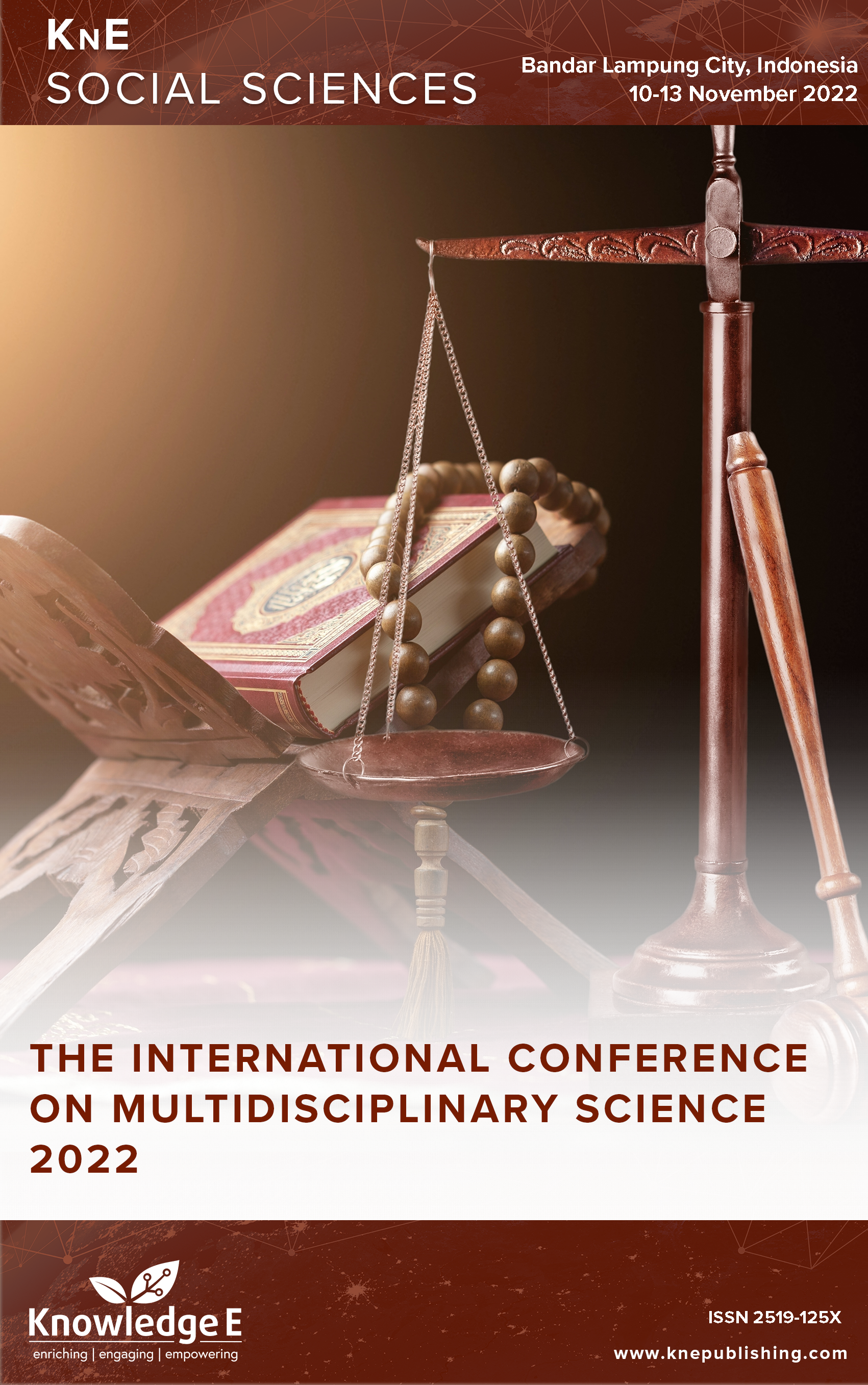Social Integration of Multicultural Communities in Lampung Province
DOI:
https://doi.org/10.18502/kss.v8i16.14074Abstract
Indonesia has many different ethnicities. In such a society, cultural integration is needed in order to create conditions for a society that respects cultural differences. The concept of integration is closely related to the view of multiculturalism, which is the process of acculturation that occurs in the form of efforts by each ethnic group to learn about other cultures without losing their own culture. In integration, people must respect and appreciate other ethnic cultures. The society in Lampung Province is diverse in religion, ethnicity, culture, and their way of life. As an area where people of various beliefs co-exist, it is very conflict-prone. The data collection techniques used in this study were observation and interviews, while the documentation and data obtained were processed using qualitative data analysis techniques. This study discusses the main issues of socio-religiousness, which are broken down into two sub-problems; first, what is the description of community life and second, what are the views of religious leaders and the forms of social integration. Bandar Lampung is a very important place because the leaders of religious institutions are people who are full of responsibility, both for themselves and for others. The view of religious leaders within the context of social integration lies in the fact that there is good integration between religious communities, through efforts such as making visits and strengthening friendships between followers of different religions.
Keywords: Integration, Religion, and Symbolic Interaction.
References
[2] Susanto AS. Sociology and Social Change. Jakarta: Bina Cipta; 1998.
[3] Susanto AS. Introduction to Sociology and Social Change. Jakarta: Bina Cipta; 2019.
[4] Bustanuddin A. Religion in Human Life: Introduction to the Anthropology of Religion. Jakarta: PT. Raja Grapindo Persada. 2006.
[5] Clifford G. Culture and Religion. Jogyakarta: kanisius. 1992.
[6] Dadang K. Sociology of Religion. Bandung: PT. Juvenile Rosdakarya. 2002.
[7] Dadang K. Sociology of Religion. Bandung PT. Juvenile Rosdakarya. 2002.
[8] Daradjat Z. Spiritual Science of Religion. Jakarta: Bulan Bintang; 2005.
[9] Ishmael F. Paradigm of Islamic Culture: Critical Studies and Historical Reflections. Jogyakarta: Titian Divine Press. 1997.
[10] Ishmael F. Islamic Cultural Paradigm: Critical Study and Historical Reflection. Jogyakarta: Titian Divine press. 1997.
[11] Fuad N, Rachmy D M. Developing Creativity in the Perspective of Islamic Psychology, Jogyakarta: Menara Kudus. 2002.
[12] Sukaragia G. Interview 7 AugustIdha. [Interview, August]. 2022.
[13] Imam A. Religion and Challenges of the Age. Jakarta: LP3ES. 1999.
[14] Ishomuddin. Introduction to the Sociology of Religion. Jakarta: Rajawali; 1996.
[15] Ishomuddin. Introduction to the Sociology of Religion. Jakarta: Ghalia Indonesia; 2002.
[16] Jalaluddin. Psychology of Religion. Jakarta: PT. Raja Grapindo Persada. 2002.
[17] Jones, Walter S. The Logic of International Relations, International Economic-Political Power and World Order. Jakarta: Gramedia Pustaka Utama. 1997.
[18] Kanisia Lara Mesu. [Interview, October] 2022.
[19] Laurensius Kasaan. [Interview, August] 2022.
[20] Natsir M. Islam and Christianity in Indonesia. Jakarta: Media Dakwah; 1988.
[21] Ma’ruf A. Fighting Terrorism with Faith. Jakarta: Counter Terrorism Team; 2007.
[22] Ma’ruf A. Fighting Terrorism with Faith. Jakarta: Terrorism Countermeasures Team; 2007.
[23] Muhaji. [Interview, August] 2022.
[24] Nahla Yuraida. [Interview, August] 2022.
[25] Soekanto S. Introduction SA. Jakarta: Raja Wali Press. 2013.
[26] Taneko SB. Indonesian Social System. Jakarta: CV Fajar Agung; 1994.
[27] Suprapto. Sociology and Anthropology. Bandung: CV Rajawali; 2010.
[28] Sururin. Ilmu Jiwa Religion. Jakarta: PT. Raja Grafindo Persada. 2004.
[29] Wayan Kantun. [Interview, August] 2022.

